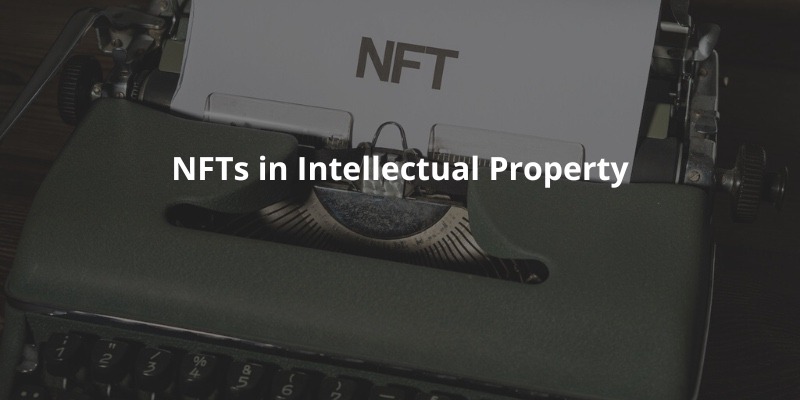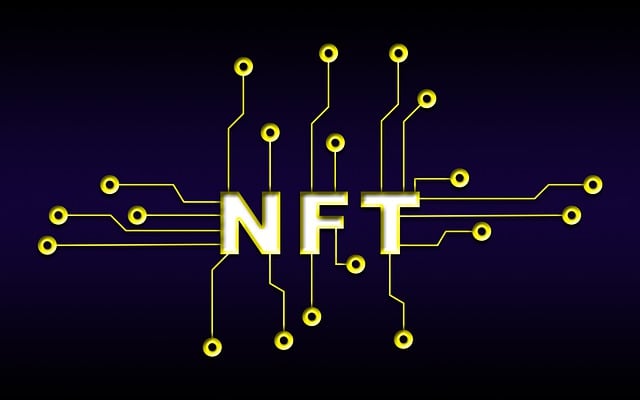NFTs in Intellectual Property
11 Jan 2023
27 Oct 2022
min read

The first-known NFT “Quantum” was created in 2014 by Kevin McCoy, a digital artist. Today we hear many news outlets speak about large corporations investing in NFTs. The NFTs industry is worth more than $41 billion dollars. The NFT marketplace is still largely unregulated. As NFTs interact with different types of intellectual property, including patents, trademarks, and copyrights, new legal considerations and precedent arise.
What is an NFT?
An NFT is a non-fungible token. It is evidence of ownership or other rights in an asset, physical or digital, or entitlement. For example, when we purchase a vehicle, we obtain the vehicle and the certificate of title. In the world of NFTs, when purchasing a tokenized digital art, we obtain an NFT. An NFT is minted by a “smart contract” that has a token ID and metadata, including reference to an asset or entitlement. A smart contract is not a legal contract, but a computer code that creates the token, which can be programmed to pay royalty to the IP owner with each resale. Nearly everything is being tokenized these days, including art, music, movies, games, collectibles, and much more. Even entitlements such as tickets and exclusive content may be tokenized. NFTs are changing the world of intellectual property.
NFTs and Patents
When most people hear of “intellectual property” they think of patents. A patent is an exclusive right granted for an invention, that is a product or a process that provides, in general, a new way of doing something or offers a new technical solution to a problem. To attain a patent with the United States Patent and Trademark Office (USPTO), an applicant must provide technical information about the invention in a public patent application.

Patent holders are now tokenizing their patents as NFTs to manage the ownership and licensing of their patents. Tokenization of patents is the process of tying a patent to an NFT, where that patent is turned into tokens that are represented on the blockchain. Many NFTs are self-executing contracts that allow a buyer all rights to the contract, including the right to use it in the case of a breach. A good example is US Patent No. 10,025,797, which Jack Fons placed on the NFT marketplace OpenSea in 2021,with an asking price of 2,250 Ethereum and remains listed for 1,250 ETH Ethereum. Various platforms have emerged, such as the IPwe platform, that permit patent owners to buy, sell, or license their patents on the blockchain.
USPTO requirements have caused delay and complications in free trade and the transfer of patents under the blockchain. Transactions involving patents must be recorded with the USPTO three months prior to the date of the transaction, including any conveyance or assignment. Although it is possible to trade patents in the blockchain, these transactions must be recorded with the USPTO prior to the date of the actual transfer as per the regulations of the office.
NFTs and Trademarks
Trademark registration secures ownership rights to an individual or a company’s branding. To register a trademark with the USPTO, a trademark applicant needs to provide evidence that it is using the trademark. Trademark protection is available for NFTs, including word marks, logos, design marks, slogans, and motion marks in various classes, including but not limited to downloadable software, non-downloadable software, digital collectibles and games, and entertainment services. That is, NFTs may be trademarked, and the number of trademark filings for NFT brands at the USPTO is increasing rapidly.
Numerous brands are now leveraging NFTs and creating authentication systems for their physical and digital goods. Higher-end luxury brands use NFTs as a digital receipt, which issues a serial number using NFTs to provide authentication for their physical goods. An NFT creator can protect its NFT collection through trademark registration, if it produces a collection or series and not simply an individual NFT. To protect an original work of art, an NFT creator or minter, can file for copyright registration. Other companies use NFT packages to license, generate revenue, and increase brand awareness. For instance, musicians may license their trademark in connection with the release of exclusive digital content for consumers.
As trademark registration of NFTs grows, so do trademark infringement suits surrounding NFTs. Below are examples of two recent trademark infringement lawsuits involving NFTs. In December 2021, French brand Hermès filed a lawsuit against Mason Rothschild, a creator and seller of MetaBirkin NFTs, which resemble Birkin bags. The Birkin bag has become a household name in high-end fashion and is often described by fashion gurus as one of the most highly coveted luxury handbags on the planet. Rothschild took to social media claiming that the First Amendment gave him the right to make and sell art that depicts the Birkin bags “just as it gave Andy Warhol the right to make and sell art depicting Campbell’s Soup cans.” Rothchild’s NFTs contained digital images of furry versions of the Birkin bags. The District Court judge recently issued an order denying Rothschild's motion to dismiss the case but held that the Roger’s test applied, setting the stage for future trademark litigation.
In February 2022, Nike sued StockX, a popular online sneaker retailer, for trademark infringement for selling Vault NFTs, a series based on Nike sneakers. StockX intended to sell NFTs tied to a physical product akin to a digital receipt. StockX hoped this would create efficient trading for sellers and buyers in the sneaker marketplace. As eight of the nine original limited edition Vault NFT series included Nike shoes, Nike filed a lawsuit claiming the Vault NFTs infringed on its trademarks and would cause consumer confusion. The verdict is still out for this case. Its outcome can have far-reaching implications for how an NFT is actually defined and whether NFTs in the resale market would be considered trademark infringement.

NFTs and Copyrights
A copyright is a form of legal protection provided by the laws of the United States for “original works of authorship” for literary, dramatic, musical, architectural, cartographic, choreographic, pantomimic, pictorial, graphic, sculptural, and audiovisual creations. Copyright is the right to copy, as well as the legal right of the owner of a copyright to have exclusive right to reproduce the work or the right to authorize others to copy the work, for example through licenses.
NFTs are not directly copyrighted. Copyrights protect literary and artistic works, and NFTs themselves are not such artistic works, rather NFTs are metadata files made up of a string of numbers and letters. Original artistic works minted as NFTs will be treated the same as any other artwork. If an artist creates a new piece of artwork, they will acquire a copyright of that artwork. Copyright rights vest as soon as an artist affixes an artwork into a medium. The copyright owner enjoys exclusive rights to reproduce the work, make derivative works, and distribute copies. A copyright owner, therefore, has the exclusive right to create an NFT based on an original work, as the creation of an NFT may be categorized as a copy or derivative work. That is, a copyright law does not give an NFT owner any rights unless the creator takes affirmative steps to make sure that it does, including executing a formal copyright license to the work connected to the NFT.
Purchasing NFTs is purchasing the metadata associated with the artwork and not the artwork itself. World Intellectual Property Organization (WIPO) notes there is a lack of clarity about what owners attain from purchasing NFTs, despite their high costs, creating widespread confusion about what intellectual property rights accompany NFTs.
In February 2022, an NFT site HitPiece was accused of copyright infringement for selling NFTs of songs by musicians, like Britney Spears and Taylor Swift, without permission. TamarindArt, modern and contemporary Indian art gallery in New York City, sued for the right to make an NFT of a 60-foot long mural it purchased from an artist in 2002 for $400K, when the artist’s estate alleged that the creation of NFTs would be copyright infringement.
Considerations
NFT marketspace still remains largely unregulated. As issues around intellectual property rights in NFTs arise, new legal precedent arises. If you are in the NFT marketplace and are concerned about intellectual property infringement or wish you assess your intellectual property rights, contact the Antares Law Firm today.
DocPro has the following NFT agreements for users to download:
NFT Art Licence Agreement - NFT Art Licence Agreement whereby the Artist grants the Minter / Gallery to convert the Art into a Digitialized Non-fungible Token for sale and the Minter is entitled to a commission.
Commissioning Agreement for NFT Artwork - This is a Commissioning Agreement for NFT Artwork whereby a Minter hires an artist to create a certain artwork for them.
DocPro has an extensive library of legal, personal, and business documents created by legal professionals! Grab our exclusive Lifetime Deal to get access to 2500+ documents for a lifetime!
Please note that the information contained in this article does not constitute legal advice. As the laws of each jurisdiction may be different, you may want to speak to your lawyer.
Keywords:

